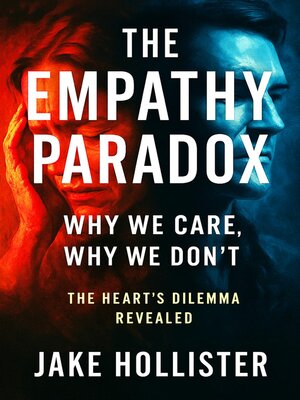
Sign up to save your library
With an OverDrive account, you can save your favorite libraries for at-a-glance information about availability. Find out more about OverDrive accounts.
Find this title in Libby, the library reading app by OverDrive.



Search for a digital library with this title
Title found at these libraries:
| Library Name | Distance |
|---|---|
| Loading... |
Why do we feel a stranger's pain yet ignore a neighbor's suffering?
Why do some act with boundless compassion, while others turn away coldly?
The Empathy Paradox: Why We Care, Why We Don't unravels the emotional, neurological, and cultural threads behind one of humanity's most complex traits: empathy.
Drawing from cutting-edge affective neuroscience, social psychology, and real-world case studies, this thought-provoking book dives deep into the psychology of empathy, exploring how mirror neurons, oxytocin, and emotional resonance shape the way we connect — or fail to. You'll discover how cognitive and affective empathy differ, how compassion fatigue sets in, and why empathy burnout is increasingly common in caregivers, doctors, and activists.
But this isn't just about science — it's about society.
In a world divided by ideology, race, and class, we examine the racial empathy gap, the impact of dehumanization, and how ingroup bias distorts our moral lens. From digital empathy on social media to emotional detachment in professional roles, the book investigates why empathy erosion threatens meaningful connection in the digital age.
Can we build empathy in a world that seems to reward indifference? Can emotional intelligence be taught, revived, or reshaped through cultural empathy and compassion training?
Perfect for readers of Brené Brown, Yuval Noah Harari, and Daniel Goleman, The Empathy Paradox is both a scientific exploration and a moral call to action. It challenges us to understand not just how we feel for others — but why we sometimes don't.
Whether you're a psychologist, a teacher, a leader, or simply someone who wants to understand human nature better, this book offers vital insight into one of the most urgent emotional questions of our time.







